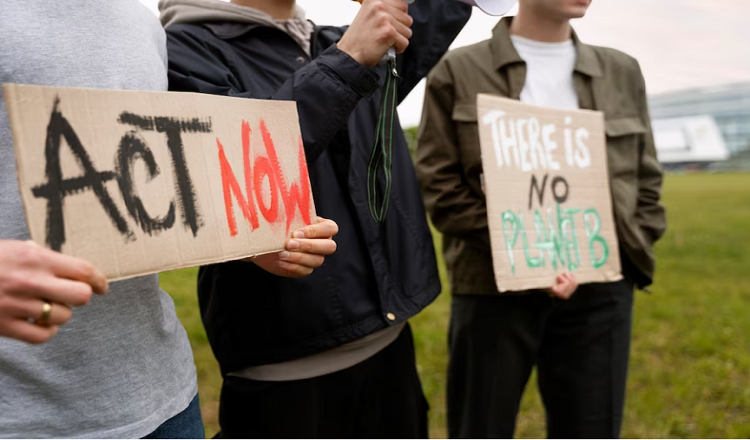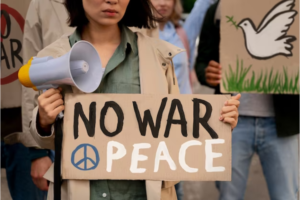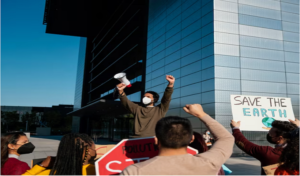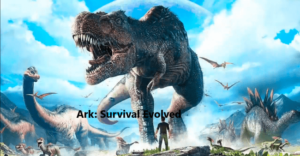Understanding the consequences of war on society

War is not something to laugh about, but sometimes it takes humour to show how serious the effects of war are on society. The war has had a big and long-lasting effect on American society. From the American Revolution to the War on Terror, the United States has been in many wars that have shaped its past and culture. Even though there are many different reasons to go to war, the results are often the same: loss of life, damage to the economy, and mental stress.
In this piece, we’ll talk about how war has changed society in the United States. We will look at the effects of war on the American economy, psychology, society, and government. We will look more closely at the long-term effects of war, from how it affects military families to how it affects marginalised groups. Our theory is that war has long-lasting effects on society that are often ignored or forgotten. By knowing about these effects, we can better understand what war really costs and work to make the world a more peaceful and fair place. So, get ready to learn a lot about war and how it has changed life in the United States.
A brief history of US wars and how they changed society
The US has been in many big wars in the past, including the Revolutionary War, the Civil War, World Wars I and II, and the Vietnam War. These wars have had a huge effect on American politics, society, and the economy, changing the way things are done in the country.
Increased military spending is one of the economic effects of war, which can also cause people to lose their jobs and prices to rise. War can also stop foreign trade and business from happening, which hurts the economy even more. War can have terrible psychological effects, like PTSD, depression, and anxiety, which can affect both soldiers and their families. On a social level, war can change the way families and communities work, especially for people who lose loved ones or have to deal with the loss of family members who are in the military. From a political point of view, war can cause human liberties to be taken away and society to become more divided. If we know how these wars changed the world in the past, we can better understand the social, economic, and political problems that Americans face today.
Effects of war on the economy in the United States
There are many and sometimes long-term effects of war on the economy in the United States. During war, military spending usually goes up a lot, which can lead to job loss, especially in businesses that depend on government contracts. As the government prints more money to pay for the war effort, this can also lead to inflation. War can also stop foreign trade, which hurts the economy even more.
Also, the defence business is a big part of the US economy. Each year, billions of dollars are spent on contracts with the military. This spending can help the economy in the short term, but it also has long-term effects, such as creating a military-industrial complex that can affect how the government makes decisions and keep spending on the military. Understanding how war affects the economy is important for lawmakers and citizens who want to make good choices about the country’s goals and how to use its resources.
Effects of war on society in the US from a psychological point of view
People in the US often don’t think about the psychological effects of war, but they can be just as bad as the physical and economic effects. Both soldiers and civilians can get mental health problems from war, such as post-traumatic stress disorder (PTSD), depression, and anxiety.
War can have a big effect on veterans, their families, and the places they live in. Veterans may have problems with their mental health, find it hard to adjust to normal life, or feel alone. Families of veterans may also feel the effects of war, like more stress, financial worry, and changes in how the family works. Also, war can have psychological effects on the whole community, such as making people more afraid and anxious and giving them a sense of loss and grief. Taking care of the psychological effects of war is important to make sure that soldiers and their families get the help they need and that communities can heal and get back on their feet.
The effects of war on society in the United States
The effects of war on society in the United States are far-reaching and can affect people and places for a long time. War can upset family and group structures, which can lead to a breakdown in social cohesion. This can be especially hard for soldiers and their families as they try to figure out how to live in civilian life again.
Also, war often hurts marginalised groups more than it hurts other groups. Women, children, and people from minority groups may face a variety of problems, such as being forced to move, losing their jobs, and going through physical and mental trauma. The effects of war on these areas can also make things worse, like making it harder to get health care, an education, or a job. Taking care of the social effects of war is important for promoting social justice, making sure that vulnerable groups don’t get left behind, and putting back together social structures that war has broken.
The effects of war on US society from a political point of view
The effects of war on society in the United States can be huge, changing the country’s political scene and affecting the way democracy works. As the government takes steps to improve national security and limit individual freedoms, war can lead to a loss of civil rights. It can also lead to a rise in militarism, in which military ideals and concerns are given more weight than those of civilians.
Also, war can make it worse for people to have different ideas about how to use armed force, which can cause deep divisions in society. Some people say that war is important to protect democratic values, while others say that it can weaken democratic institutions and the rule of law. Understanding the political effects of war is important for making sure that democratic systems stay strong and that people can take part in the political process in a meaningful way.
Conclusion
In the end, war has a big effect on society in the United States. It has far-reaching effects on the economic, social, political, and mental parts of life. War can hurt the economy by making people lose their jobs, raising taxes, and causing prices to go up. Spending on the military can have big effects on the defence industry and the military-industrial complex. The mental effects of war can cause PTSD, depression, and anxiety, which can affect veterans, their families, and their towns. Some of the social effects are the breakdown of family and community systems, and marginalised groups may be hit harder than others. Lastly, war can have big effects on politics. It can hurt civil rights, encourage militarism, and make society more divided.
To deal with the long-term effects of war, it is important to know how it changes society. By recognising how war affects people, we can take steps to lessen its effects and help those who are hurt. To deal with the long-term effects of war on American society, it’s important to invest in mental health care, help out marginalised communities, and promote democratic ideals and institutions. In the end, we must remember that war affects not just soldiers but also whole towns and societies, and we must work together to promote healing, recovery, and social justice.
Read More You May Like:








